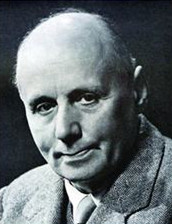UWC Education Through the Lens of GIF
Issue date:2019-05-17Kurt Hahn, founder of the UWC movement, sought to bring together young people whose experience was of political conflict in the cold war era. His idea was to create a school where students from diverse backgrounds, often with conflicting national interests, would learn together the ideals of peace and international understanding. After graduation, UWC alumni are expected to “act as champions of peace” and advocate a social order built upon peace and justice in the world.
Author
Shirla Sum, graduate of Pearson College UWC; currently Deputy Dean of Studies and Director of Yushan Academy Center for Design and Innovation at UWC Changshu China.
What is GIF?
Global issues Forum (and its similar variations) is held across the 17 UWCs globally as a signature UWC activity, given its resonance with the overarching UWC philosophy; to gather as a community to exchange and debate diverse perspectives on issues of global significance, by members of different cultures, nationalities, religions, races and socio-economic backgrounds. GIF is one of the "Zhi Xing" activities at UWC Changshu China. Ever since the autumn of 2017, internal (students and faculty) and external speakers have delivered more than 50 GIF sessions covering topics ranging from humanitarian crises to the frontier of science. Notable topics include Artificial Intelligence’s gender bias, parallels between the conflicts in Northern Ireland and Israel-Palestine, Black history and racism, and issues related to China, from education in rural areas in China, rise of financial technologies in China, to air pollution and the myth of Chinese economic growth.
As teacher supervisor of Global Issues Forum (GIF) for the past two years, I have come to realize that the journey towards achieving Hahn’s vision is no easy one. Nervousness has risen inside me while sitting in every session of GIF. How would different members of the community react this time? How many would get ‘offended’ by an opinion expressed? GIF in practice, can be extremely uncomfortable events where students and faculty are forced to encounter viewpoints dramatically different from their own. Not only is it an intellectual exercise, it is a strongly emotional experience to hear voices which at first encounter… seem foreign, strange or even nonsensical. There have been intense, difficult moments of silence, tears, anger-fueled dialogue. That is the naked truth; no different from the social dynamics in corporates, institutions and governments around the world.

GIF: Student presenters on race issues during Black History Week
How do we then move from heated disagreements to achieving peace and international understanding?
The GIF experience helps cultivate the intercultural competence necessary for students to make a difference in the global world. As defined by Byram (1997), intercultural competence involves a combination of the knowledge of others’ perspectives and the skills to synthesize and negotiate the views of others. How much do we know about the sources of others’ viewpoints? How does one move beyond the initial shock, in order to effectively ‘synthesize’ and ‘negotiate’ the views of others? How should one engage in cross-cultural dialogue and learn from the experience?

Students asking questions at GIF
When our students present at GIF, they lay bare the sources of their views. Such views are a product of personal experience, individual value orientation and broader historical and ethical context. We start a GIF with many who consider the legitimacy of using capital punishment to be a purely ethical issue. A student from Latin America then poignantly points out the economic burden of incarceration which poses significant stress on governments that are struggling to make ends meet. Another student from South Asia cites the flawed judicial system in his country which ends up executing the innocent more often than not. As the discussion unfolds, students start to build rich layers of understanding as they are presented with elusive, yet powerful arguments far more than meets the eye. Our whole community, in fact, come to realize that all of us (our perspectives, views and beliefs) are shaped by a multitude of global and local forces. Only when students gain deeper understanding of this web of relations, can they engage in conversations which promote international understanding, and gradually lose any stereotypical tendencies towards others.

GIF: Li Po Chun UWC alumni Kenneth She presenting on the impact of sharing economy on the future
GIF not only promotes deep understanding of the views of others, it sheds critical light on the stance of oneself. Inspired by Hegel, Kurt Hahn wanted to specifically target youths between the age of 16-19, who are believed to be best positioned to encounter cultures different from their own, where they are “sufficiently rooted in their own culture not to risk becoming disoriented, and sufficiently open to learn quickly from the new experience” (Peterson, 2003). By engaging with others from other cultures on important global issues, students are challenged to acknowledge and become knowledgeable about one’s own perspective and cultural practices. In fact, contrary to Hahn’s claim, students do sometimes get disoriented. Yet, as they progress from Foundation Program to graduating as DP2 students, they come to realize their own biases and partiality. Most importantly, they reconcile with the fluidity of their own views; their ‘self’ evolves with every GIF attended.
In GIF, I learn about issues I didn’t know much about before. Even though these issues might not have any direct impact on me, but they are important to my co-years and first years. They also explain the actions, behaviour and thinking processes of my peers and friends from the different nations represented on campus; ultimately, to see issues from the perspectives of those at the heart of the issue.
- Bastian Mielke, Germany
Amidst the range of different perspectives, GIF reinforces fundamental values shared among us. As a value-based education institution, UWC Changshu China strives to mitigate the risks of indoctrination versus value neutrality. The spirit of GIF is to allow students to express and harvest different viewpoints, and demonstrate an appreciation of the rich diversity of perspectives. At the same time, it is of utmost importance to negotiate the scope in which it is permissible to differ and establish lines not to be crossed, to ensure our students become responsible, ethical participants of civil society. After all, responsibility, integrity and respect precede any 21st century skills currently popular in education discourse. They form the compass for our students to navigate through the increasingly challenging, complex and uncertain world.

*Gordonstoun is a school founded by Dr. Kurt Hahn in 1934.
Developing intercultural competence
GIF is only one example of the UWC education experience. Intercultural competence is developed everyday as students learn, live and share the UWC experience. Our common values are re-iterated and reinforced through meaningful encounters in academic life, residential life, Zhi Xing activities and so on. Through this shared experience, our students grasp the significance of our shared humanity, ultimately the most powerful driver for individuals to make a difference in the world. At the end, as Kurt Hahn rightly points out, if two students from very different parts of the world can become “thoroughly seasick” together, or in this case, argue in GIF together, we have done something for international education.
Citation:
Byram, M. (1997). Teaching and Assessing Intercultural Communicative Competence.Multilingual Matters.
Hahn, K. (1954). Gordonstoun and a Europe Mission. American-British Foundation for European Education.
Peterson, A. D. C. (2003). Schools Across Frontiers: The Story of the International Baccalaureate and the United World Colleges. Open Court Publishing.










